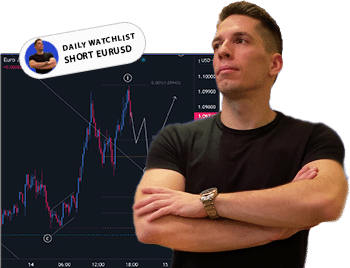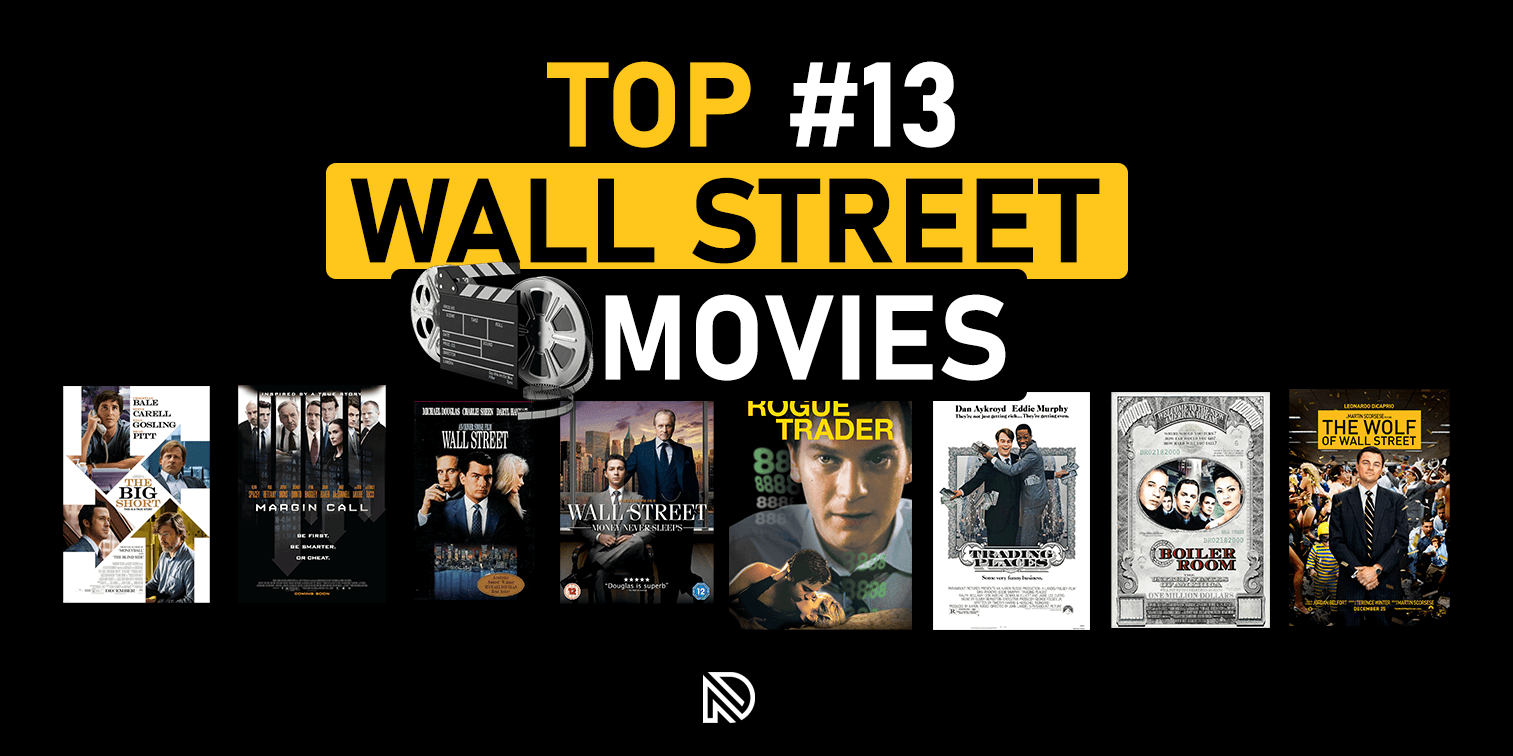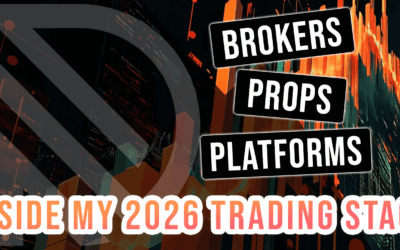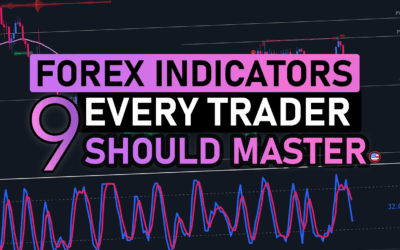Most traders waste hours on YouTube or Netflix watching random stuff that does nothing for their trading. Here’s a better idea: watch movies that actually give you perspective on money, markets, and human behavior. Movies aren’t going to give you a trading system, but they will show you how greed, fear, and decision-making play out in the real world. And if you’re serious about becoming a better trader, those lessons are priceless.
So, instead of pretending you’re “resting” while binge-watching junk, here are 13 movies that will actually make you smarter about trading, finance, and life.
The Big Short (2015)
This isn’t feel-good cinema. It’s four finance outsiders—Burry, Vennett, Baum, Geller & Shipley—spot the U.S. housing bubble before it pops. They bet big on its collapse, and while the world burned, they banked billions. You get the ugly truth: crooked ratings agencies, greedy banks, and a system built to fail—and laughably, Hollywood helps you digest it. Margot Robbie in a bathtub explains mortgage bonds; Selena Gomez at a poker table breaks down synthetic CDOs. No fluff. Just brutal insight, delivered fast. You’ll watch this and learn more about systemic failure and human behavior than any textbook ever taught.
Margin Call (2011)
You get 24 hours in the life of a Wall Street firm on the edge of collapse. A fired risk manager tosses a USB to a junior analyst. The analyst runs the numbers—bam, the firm is completely over-leveraged, and bankruptcy is a heartbeat away.
This isn’t about fancy trades or bull-market hype. It’s snowballing risk, paranoid executives, moral compromises under pressure. One bold move: a fire-sale of toxic assets to save the firm, mercilessly passing the pain to others for short-term survival.
Lesson for traders: markets punish blinkers. You respect volatility or you die. When you sense the system is rigged or broken, sitting on your hands is not an option. Every decision is a moral test, not just a financial one
Wall Street (1987)
This one’s legendary. A hungry junior broker—Bud Fox—gets schooled in gritty insider trading by Gordon Gekko, a corporate shark whose mantra is “greed… is good.” It’s not a sermon—it’s raw reality dressed up as cinema. Gekko pulls Bud into ruthless schemes, short-term thinking, and manipulations that leave self-respect at the door while pushing power and profit under the rug.
Behind the Hollywood glam is the cautionary core: excess and recklessness attract—but they also destroy. The movie was meant to critique greed, but ironically, it inspired a wave of would-be Gekkos across finance. That’s your real takeaway: charisma can blind you. Most traders aren’t picking up lessons—they’re wooed by the swagger.
Watch this and feel the pull of unethical shortcuts, then ask: Am I building something or feeding a hype loop?
Wall Street: Money Never Sleeps (2010)
This sequel drops Gekko back into the fast lane—but now it’s 2008, and the financial world’s teetering on collapse. Gekko’s out of prison, pushing a book called “Is Greed Good?” while trying to reconnect with his daughter amid the chaos of a meltdown he helped fuel. Meanwhile, Jake Moore (LaBeouf) is the clean-cut trader caught between ambition, ethics, and a collapsing mentor.
Spoiler: when Greed lives and profits again—even after the apocalypse—that’s not redemption. It’s just self-interest wearing a cape.
This one trades subtlety for melodrama: clean-energy ideals get dumped by the side of the road, market manipulation is back in vogue, and corporate two-facedness is on full display. Gekko might seem “reformed,” but his instincts are intact. Jake’s idealism crashes when real money—and legacy—are on the line.
The lesson: crises reset the game, but not the players. Scared into survival, traders will dress Judas up as a savior, while trust and morality get sacrificed on the altar of “long-term vision.” That’s the real danger—even “the good guy” plays dirty when chaos is currency.
Rouge Trader (1999)
You’re looking at the real-world version of “don’t give a man the keys to the bank.” Nick Leeson (Ewan McGregor) gets promoted into a corner office at Barings Bank and sneaks away into unchecked chaos—creating the infamous “88888” account to hide his losses while pretending to win. It starts small, but soon the losses spiral past £800 million, and the bank collapses entirely.
This isn’t about flashy trades or heroic wins. It’s about hiding failure until it’s gone nuclear, and how complicit silence at the top turns a mistake into a meltdown. It’s messy. It’s human. It’s the kind of caveat that every trader needs to see before they think the rules don’t apply to them.
No pep talk here—it’s a brutal reminder: when you’re left unsupervised, ego fills the gaps. And ego kills. Watch this movie and ask yourself: are my trades transparent, or am I quietly betting the bank?
Trading Places (1983)
This one’s a financial playground turned mirror. A suit-and-tie commodities broker and a street hustler swap lives on a billionaire brothers’ twisted bet. The hustle? Use a stolen crop report, corner the orange-juice futures market, crash the price—and flip the system against its owners.
What makes it smart: it exposes the mechanics of trading, supply and demand, market psychology—and shows how unverifiable data and leverage can be a weapon. Here’s your textbook scenario: buyers and sellers, an open outcry floor, and greed-fueled shortcuts.
But it’s not just a math lesson—it’s a satire. It slaps you with how easily status and access can flip the game. A street hustler picks up the broker’s swagger, a broker learns street smarts—and both expose the system’s fragility.
Real takeaway for traders: two fundamentals:
1. Markets can be gamed if you control the narrative.
2. Anyone could perform if the rules and mental models are shifted.
And you’ll laugh through it—while learning that markets aren’t just numbers. They’re human drama dressed as price charts.
Boiler Room (2000)
This film pulls back the curtain on a boiler-room brokerage that’s basically playing pump-and-dump blackjack—with real lives as chips. You’ve got Seth Davis, a college dropout who ditches running an illegal casino to join J.T. Marlin—a firm where closing is everything, and ethics don’t even rate on the scoreboard. High-pressure cold calls, shady penny stocks, and fast money at the expense of gullible investors—that’s the rulebook here.
Every pitch is a hustle, every “no” is just a setup for another “yes.” As one senior broker says:
“There is no such thing as a no-sale call. A sale is made on every call you make.”
This film doesn’t glamorize—if anything, it warns. The lure of Ferraris, fast cash, and approval blindsets traders. Ambition without ethics = moral free fall. Seth’s rise lands in ruin—his father’s disappointment, investor ruin, a federal investigation. That’s the real cost of unchecked greed.
Lesson for traders: Know the difference between hustle and scam. Be relentless, yes—but don’t lose your moral compass while pushing for the close. When you see a pitch this good, ask yourself: Who’s really winning? If it’s not you, you’re probably the mark.
The Wolf of Wall Street (2013)
This is three hours of market carnage disguised as a riotous party. You follow Jordan Belfort—the natural-born hustler who flips penny stocks into a weapons-grade fraud machine at Stratton Oakmont. He builds a boiler room that’s equal parts pump-and-dump and moral freefall, then buys Ferraris and spews Quaaludes into chaos.
Key trading takeaways:
– Dominate with systems, not charisma. Belfort’s success wasn’t genius—it was repetition. A sales framework built in a garage, hammered into 1,000 brokers calling until compliance broke. That’s working systems, not luck.
– Manipulation is easy, but karma pays interest. The “pump and dump” model made them millions—but the house always wins. Victims and legal bills followed.
– Sales mastery doubles as self-destruction. Belfort’s opportunistic niche targeting (“wealthy 1% vs. gullible masses”) and ruthless selling fueled a crime spree that crashed and burned.
This film isn’t just a thrill ride—it’s a vivid warning: systems amplify your intent. And if your intent is crooked, the consequences will be brutal.
Too Big to Fail (2011)
This HBO drama throws you into the firefight at the heart of the 2008 meltdown. No flashy trades—just a real-time scramble as Lehman Brothers collapses, Treasury Secretary Henry Paulson and Fed Chair Ben Bernanke rave-fight for bailout power, and Congress inks TARP to try to prevent economic Armageddon. It’s systemic failure being paper-mopped at speed.
What it teaches traders—if you can handle it:
– System risk isn’t theoretical. When one major player drops, the ripple hits every desk. Networks matter more than numbers.
– Government isn’t your ride or die. Aid isn’t automatic—it must be demanded, twisted out of reluctant systems. TARP wasn’t charity—it was blackmail with economic collapse on the line.
– Too big to fail = too dangerous to trust. Institutions can exploit the perception of rescue to gamble recklessly. Moral hazard doesn’t just live in textbooks.
This isn’t flick for wannabe heroes. It’s for traders who take markets seriously enough to respect fragility, transparency, and the ugly truth that bailouts are reactive—not preventive.
Dumb Money (2023)
This is the meme-stock saga, turned cinema: everyday folks on Reddit vs. the big hedge funds. Keith Gill—aka “Roaring Kitty”—goes all-in on GameStop, ropes in amateur investors through YouTube and WallStreetBets, and sparks a short squeeze that slams elite shorts while lighting up the internet.
The financial mechanics are laid out clean: how a community of “dumb money” turned the tables, and how even tech platforms like Robinhood can freeze the game at the drop of a hat.
It’s entertaining—fast, funny, star-studded—but don’t mistake it for a financial guide. It dramatizes the chaos of collective defiance, but glosses over the real psychological and strategic caveats.
Core trader lessons here—if you’re thinking clearly:
– Momentum can be turbocharged by community—but it’s a wildcard, not a strategy. Mass coordination moves markets—but a pack can turn on you when the platform or sentiment shifts.
– Retail power is real—but fleeting. It’s not a sustainable edge. “Wall Street will never ignore retail again”—maybe. But legacy systems and liquidity typically outlast the meme bubble.
– Leverage and hype kill discipline. None of this was built on solid fundamentals. It wasn’t investing—it was crowd-driven mania. Extreme risk pays out… sometimes. Until it doesn’t.
– Be skeptical of the narrative. The movie celebrates “David beating Goliath,” but glosses over why the David didn’t get crushed—or how the system bent to bend reality for the spectacle.
The Bank (2001)
This is finance turned thriller, and it’s personal. Jim Doyle—a rogue math genius—built a program (B.T.S.E.) that predicts stock market shifts using fractal chaos theory. The bank—run by a ruthless CEO named Simon O’Reily—hires him not to stop crashes, but to cash in on them.
What this teaches traders (if you’re serious):
– Smart models aren’t harmless—they amplify intent. Use them for insight or manipulation—the choice reveals character.
– Systems may promise control, but they don’t promise morality.
– Never outsource ethics to a formula. In the absence of oversight, the machine becomes the master.
Go watch it, feel the weight. Then ask yourself: Am I building to serve—or to exploit?
Arbitrage (2012)
What looks like a trading title is actually a fraud flick. Robert Miller, a hedge-fund magnate played by Richard Gere, is trying to sell his empire while hiding a $400-million hole in his balance sheet. He’s borrowed big, fudged the books, and is living on borrowed time. All while juggling a messy personal life and a fatal car accident that could blow his cover.
This isn’t high finance wizardry—it’s about hiding failure until it explodes. One accident and you’re scrambling for fixes, favors, and cover-ups that unravel faster than you build them.
What this teaches traders—no fluff:
– Appearances only travel so far. You can cook books and act flawless—but the cracks show, and the price is real.
– Lie once, lie forever. One falsehood forces another. Cover-ups collapse faster than assets.
– Ethics vs. profit isn’t broken math—it’s brutal choice. Miller risked everything for a sale and ended up in a moral free fall.
– Even the hunter gets hunted. When his scheme starts unraveling, the enforcer (played by Tim Roth) isn’t much cleaner—reminding you that dirty money circulates in dirty hands.
This flick isn’t here to teach arbitrage strategies. It’s here to remind traders: systems amplify intent. If your intent is crooked, your profit is just a countdown to collapse.
Other People’s Money (1991)
Meet Larry “the Liquidator.” He’s got a stock screen, an algorithm, and a mission: hunt undervalued companies, strip assets, and walk away richer—no drama, no loyalty. He targets New England Wire & Cable, a debt-free business whose stock trades below its actual asset value. Value is obvious—but emotion and legacy stand in the way.
Cue the tension: Jorgy, the old-school CEO, runs the company like a family, grounded in community and legacy. Larry sees cold numbers. A hostile takeover battle ensues, pitched before shareholders with charm, logic, and ruthless leverage.
Here’s your real takeaway:
– Numbers don’t pay sympathy. Even strong balance sheets don’t survive emotional commitments when asset value screams liquidation.
– Stakeholder vs. shareholder: it’s not academic—it’s real. For traders, this dichotomy comes up all the time: assets move markets, but people make decisions.
– Algorithms don’t preach—they execute. Larry’s Carmen system spots undervaluation. But deploying it without empathy? That’s how you trigger collapse.
– Modern capitalism flips narratives fast. Jorgy’s moral plea almost wins over tradition—but in modern markets, profit speaks louder.
– Sometimes the “smartest” move is emergent collaboration—not takeover. Movie ends on a soft note: a Japanese firm steps in, saving jobs and leveraging existing assets. Not liquidation, but leverage.
Lesson for traders: Don’t fool yourself—markets are part data, part people. When you trade other people’s money, you trade their stories, identities, and values—whether you like it or not. And that’s often the edge or the downfall.
These movies aren’t just entertainment. They’re condensed lessons in psychology, risk, discipline, and the ugly (but real) side of markets. Traders who ignore the human side of the game usually don’t last.
So here’s the challenge: don’t just watch these movies — study them. Look at the decisions, the mistakes, the greed, the fear. Ask yourself: How does this show up in my own trading?
Because if you learn those lessons here — on screen — you won’t have to pay for them later in the market.






0 Comments